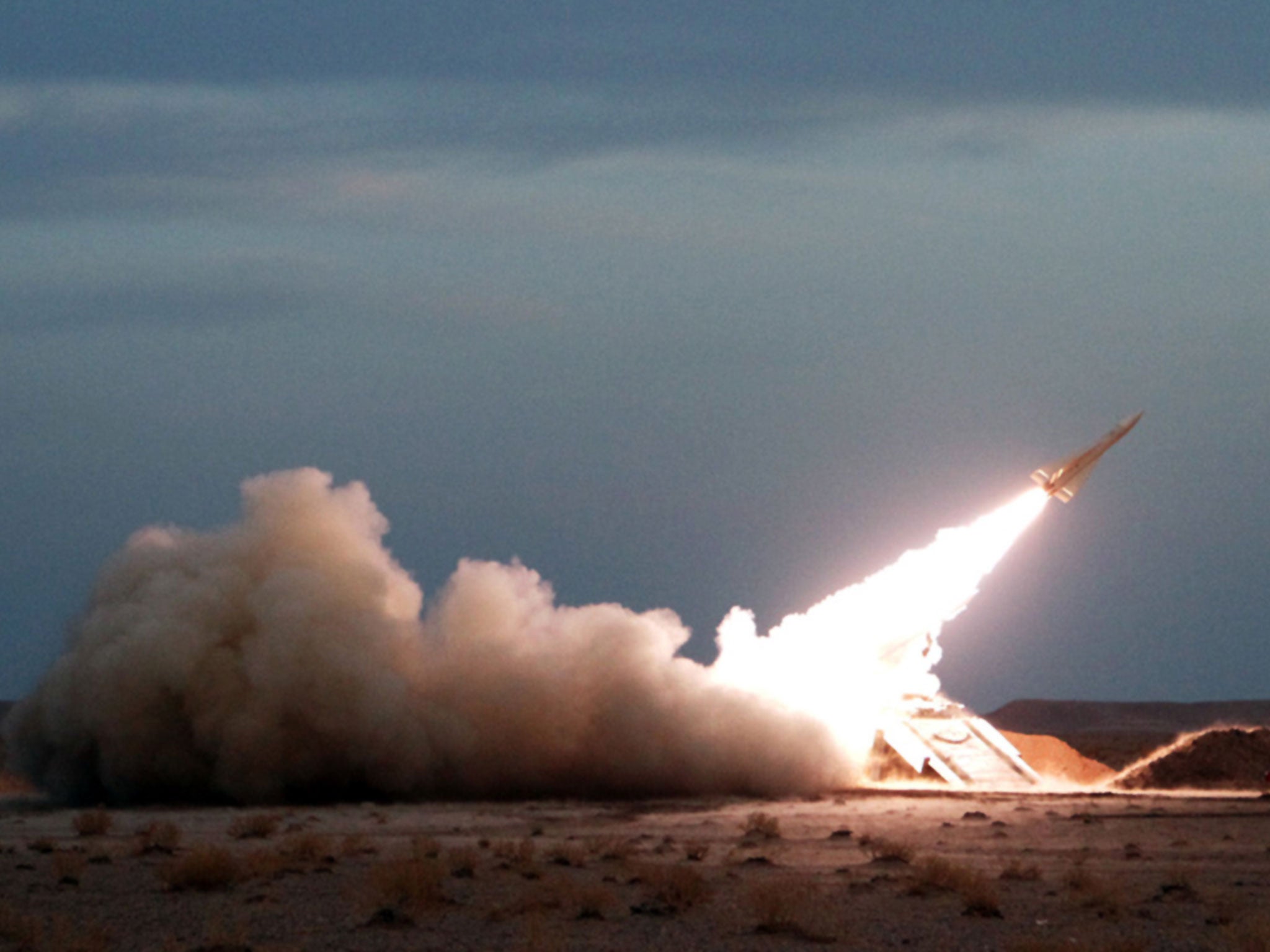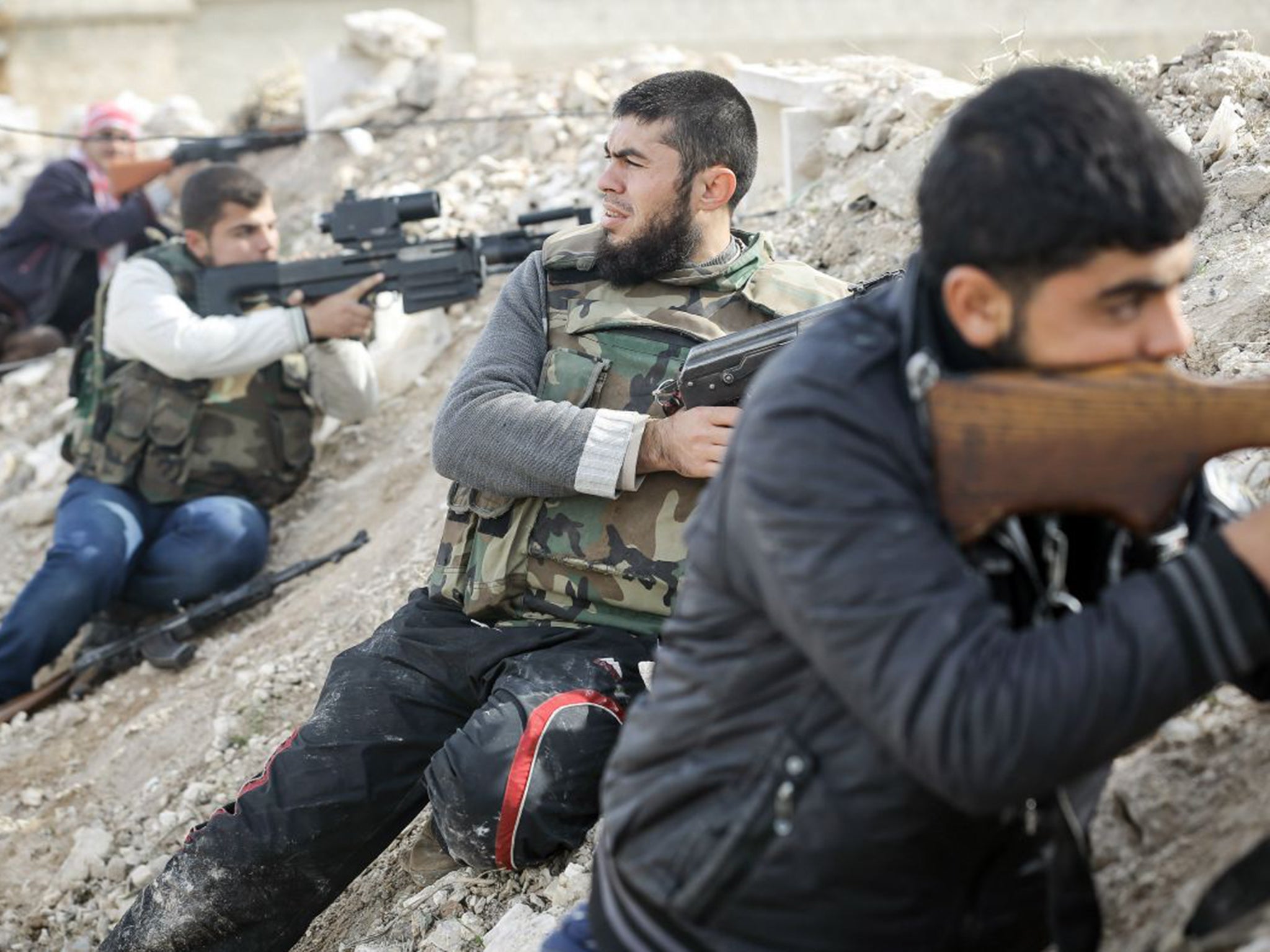Saudi Arabia recommends giving surface-to-air missiles to Syrian rebels to 'change balance of power'
Adel al-Jubeir, the foreign affairs minister, said there would have to be assurance weapons would not 'fall into the wrong hands'

Your support helps us to tell the story
From reproductive rights to climate change to Big Tech, The Independent is on the ground when the story is developing. Whether it's investigating the financials of Elon Musk's pro-Trump PAC or producing our latest documentary, 'The A Word', which shines a light on the American women fighting for reproductive rights, we know how important it is to parse out the facts from the messaging.
At such a critical moment in US history, we need reporters on the ground. Your donation allows us to keep sending journalists to speak to both sides of the story.
The Independent is trusted by Americans across the entire political spectrum. And unlike many other quality news outlets, we choose not to lock Americans out of our reporting and analysis with paywalls. We believe quality journalism should be available to everyone, paid for by those who can afford it.
Your support makes all the difference.Saudi Arabia’s foreign minister has said Syrian rebels should be armed with surface-to-air missiles to “change the balance of power” against Bashar al-Assad.
Adel al-Jubeir repeated his country’s offer to send ground troops to fight Isis in an interview with Der Spiegel, but did not specify whether they would directly battle the regime.
He claimed that Assad will not feature in Syria’s future, whether the conflict is resolved through peace talks or battle.
“In the long term, it will be a Syria without Bashar Assad,” Mr al-Jubeir added. “The longer it takes, the worse it will get.”
But the Syrian President has gained the upper hand in the conflict in recent months, with regime troops gaining swathes of territory from rebels in Aleppo province backed controversial Russian air strikes.
As well as alleged civilian deaths, the advance has raised fears that diminishing the ranks of anti-government rebels who have been fighting could help the terror group hold territory in its so-called Islamic State.
Mr al-Jubeir told Der Spiegel that giving “moderate” fighters surface-to-air missiles would “change the balance of power on the ground”.
“It will allow the moderate opposition to be able to neutralise the helicopters and aircraft that are dropping chemicals and have been carpet-bombing them,” he added.

“This has to be studied very carefully, however, because you don't want such weapons to fall into the wrong hands.”
But the minister did not specify how that possibility would be prevented as Isis continues to battle for more territory and other Islamist groups, including those affiliated with al-Qaeda, mingle with the Free Syrian Army in an ever-shifting network of alliances.
Saudi Arabia is still ready to support the US-led coalition against Isis with special forces on the ground, he said before angrily rejecting similarities between the terrorist group and his country’s own Wahhabist ideology.
Like Isis, Saudi Arabia bases its legal system on an interpretation of Sharia law that punishes blasphemy, apostasy, homosexuality and adultery with death, beheadings and stonings.
Dismissing comparisons as an “oversimplification”, Mr al-Jubeir said the group’s “psychopaths” were trying to destroy his country.
“Daesh (Isis) members wear shoes - does this mean everybody who wears shoes is Daesh?” he added.
“Isis is as much an Islamic organisation as the KKK in America is a Christian organisation.”
Saudi Arabia is carrying out air strikes as part of the US-led coalition in Syria and is also embroiled in another intervention in Yemen, where it is bombing Houthi rebels fighting the government.
That conflict looks to continue and there is little hope for a long-term ceasefire in Syria, despite preparations for a meeting between a multi-nation “task force” led by Russia and the United States.
Saudi Arabia is among 17 nations invited to talks to be held in Geneva aiming to force a temporary truce in Syria's five-year civil war that has killed at least 250,000 people and displaced at least 11 million more.
Additional reporting by Reuters
Join our commenting forum
Join thought-provoking conversations, follow other Independent readers and see their replies
Comments